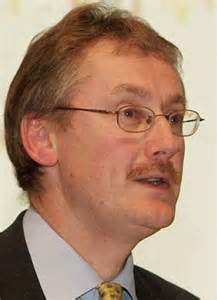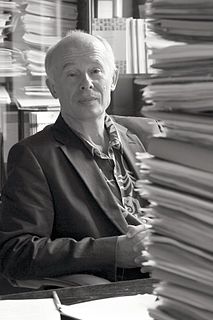A Quote by Ramez Naam
Many of the most science-fictional tools to fight climate change are untested, are almost impossible to truly test at planetary scale - we only have one planet after all. We're better off cutting our emissions so we don't need them.
Related Quotes
Many scales of climate change are in fact natural, from the slow tectonic scale, to the fast changes embedded within glacial and interglacial times, to the even more dramatic changes that characterize a switch from glacial to interglacial. So why worry about global warming, which is just one more scale of climate change? The problem is that global warming is essentially off the scale of normal in two ways: the rate at which this climate change is taking place, and how different the "new" climate is compared to what came before.
What about our refusal to look squarely at the degradation of the planet we inhabit? In the last election cycle many candidates refused even to acknowledge the hard science, irrefutable science, of climate change. The president, while readily accepting the facts, has done far too little to alter them. How long are we, are you, prepared to wait?
It is impossible to talk about slowing climate change without talking about reducing CO2 emissions. Equally, it is impossible to talk about adapting to climate change without considering how we will feed ourselves. And it is out of the question that we can adapt agriculture without conserving crop diversity.
It's a common perception that science and religion are mutually exclusive. But there are many scientists who would consider themselves to be spiritual people. Not only that, but in the case of climate change - a scientific issue with strong moral implications and difficult decisions to be made - it's essential to connect the science to our values. And for many of us, our values come from our faith.
Any objective look at what science has to say about climate change ought to be sufficient to persuade reasonable people that the climate is changing and that humans are responsible for a substantial part of that - and that these changes are doing harm and will continue to do more harm unless we start to reduce our emissions.
Sensible policies on global warming should weight the costs of slowing climate change against the benefits of slower climate change. Ironically, recent policy initiatives, such as the Kyoto Protocol of 1997, have been introduced without any attempt to link the emissions controls with the benefits of the lower emissions.
For 25 years countless people have come to the U.N. climate conferences begging our world leaders to stop emissions and clearly that has not worked as emissions are continuing to rise. So I will not beg the world leaders to care for our future. I will instead let them know change is coming whether they like it or not.
I think climate change is probably the most extreme, and it's been going on for years because it's very difficult to talk about a planetary issue like climate change and to get people who live within four-year electoral cycles to actually pay attention to something that you predict is happening way in the future.






































